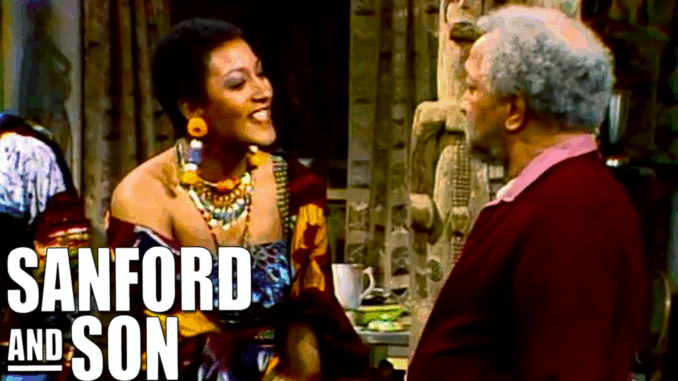
At a glance, Sanford and Son might appear to be just another sitcom built on banter between a grumpy father and his idealistic son. But look deeper—episodes like “Lamont Goes African” reveal a show grappling with real cultural tensions in Black America during the 1970s.
In this pivotal episode, Lamont becomes captivated by African heritage, adopting a new name and wearing traditional robes. Fred Sanford, always quick with a joke, mocks the entire transformation. But behind Fred’s insults lies something deeper: generational trauma and resistance to identity redefinition.
Fred’s sharp tongue isn’t just comedy—it’s commentary. His skepticism reflects a generation of African Americans who were raised to assimilate, to survive by “not making waves.” Lamont’s journey, however misguided at times, represents the younger generation searching for authenticity in a system that had erased so much of their ancestry.
When Lamont proudly declares himself “Kalunda,” we see more than rebellion—we see yearning. Sanford and Son doesn’t mock this journey. It dares to explore it, placing questions of Black identity and self-perception into millions of American living rooms without apology.